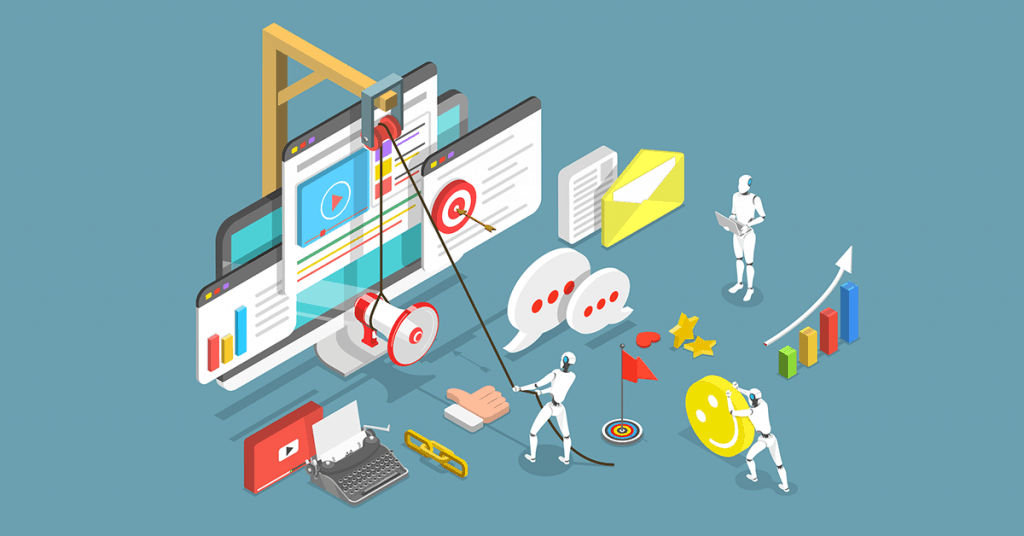The majority of your customers are on social media. Whether it’s Twitter, Facebook or Instagram. Not utilizing these platforms is a mistake, that you don’t want to make. Research into customer engagement actually found that 81% of people were influenced by social media to buy a product.
Not only is social media a great place to advertise your products, but it’s also a great source of information. You can find out about your customers, what they like, and their buying habits. As well as engaging with them, and improving your relationship.
B2B social media provides marketers with the perfect system to present and engage their customers. This changes how customers feel towards other brands, and vice versa. This is precisely why most brands find meaningful ways to engage with their customers on social media.
In fact, 90% of marketers apply a social media strategy to their business, hastily becoming one of the most popular B2B marketing tactics.
What is marketing automation?
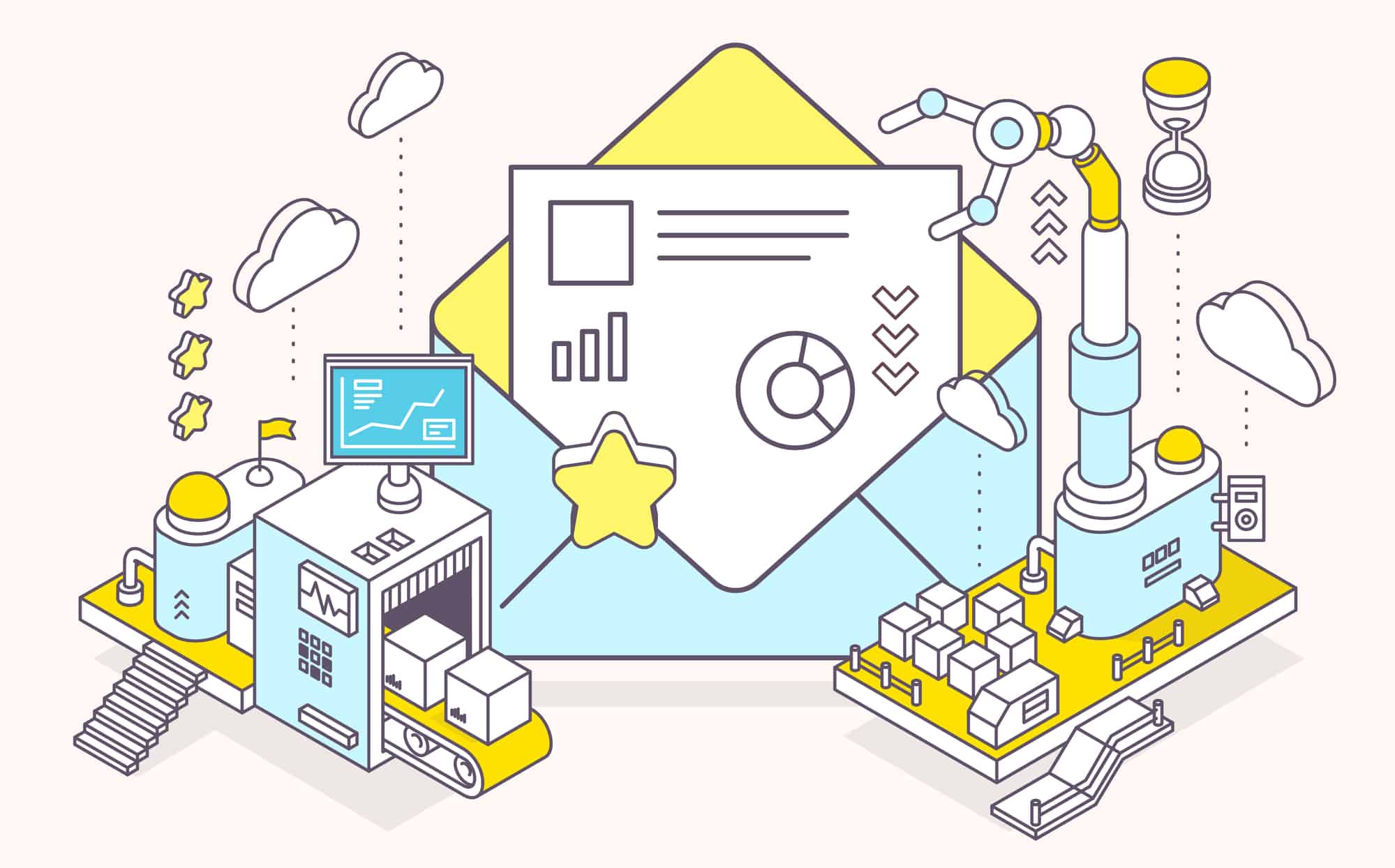
If you’re not already familiar with the term “marketing automation,” it’s basically when software collects and uses data to send personalized messages, based on their actions and at different times.
You might have heard of “CRM-powered email marketing software” or “all-in-one marketing and sales software” – they’re all the same thing.
So, why is it so popular at the moment? It’s simple, really. It provides businesses with the software to send the right message at the right time to the right person. In the same way that a phone call does, without the same amount of time and effort going into it.
Automation is now able to very subtly personalize messages for your potential customers, based on their location, for instance. Review sites like Pick Writers help businesses find companies to localize their marketing messages. It allows them to personalize marketing content not just linguistically, but even culturally.
For us, this means that marketing automation isn’t just another buzzword or over-hyped technique. It’s an ingenious solution to many business challenges, like, communicating with contacts in a personalized way.
As you can see from above, the US marketing Automation Software industry has been growing at 30%+ annually, and it shows no signs of slowing down. Many B2Bs are realizing just how useful, and effective marketing automation can be and are jumping on board.
Marketing automation workflow
To allow your marketing automation to work correctly and efficiently, you will need a workflow. Sometimes called a sequence, a workflow is basically the journey that your marketing automation plan will take.
The four essential elements of this are:
- Triggers – (What causes it to start, perhaps its someone signing up to the newsletter, or it might be somebody purchasing from the site.
- Delays – The time between each different step.
- Conditions – These are the conditions that the contact must match. For example, they might not have clicked a specific link or filled out a review.
- Actions – What should be done if the conditions are/are not met? Do they get a deal, a specific message? Your choice.
This is different from email autoresponders as it enables you to record and build up information on every contact. Essentially, you’ll be able to send personalized messages to every one of your contacts, about products, services or deals that you know they’ll be interested in.
Combining it with B2B social media
Marketing automation is all great, for emails, but how do we combining this with social media? Well, any marketer will know by now that social media, as useful as it is, is also extremely time-consuming.
It’s absolutely necessary that businesses are present on, at least one, social media network. It allows them to present their brand, engage with customers, and provide everybody with information about their business.
The sad news is, many B2Bs aren’t too great at social media, and the blunt truth is – you can’t be. Not in this social media-saturated world. This is where marketing automation comes in.
Social media marketing is absolutely crucial for any business. Check out our post on the social media tools that make everything easier for you, if you feel like you’re struggling.
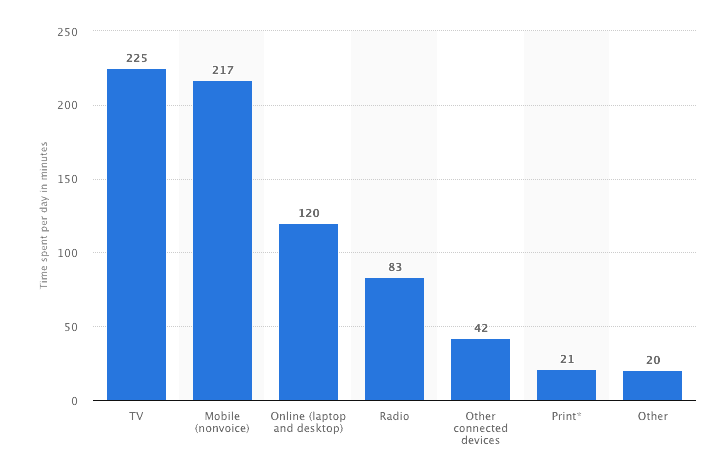
[Image Source Statista]
Nonetheless, social media automation encourages social engagement, without any manual labor from yourselves. Allowing you to reap the benefits of social media, without continually using the platforms yourself. Though, scrolling through Instagram all day wouldn’t be the most laborious life, would it?
How to get started
There are a few things that you will need to begin marketing automation with B2B social media. These are:
- A central marketing database -This allows you to send the message based on customer interaction and behaviors.
- An analytics engine – This allows you to see where exactly your marketing efforts are working, and where you can improve. Marketers will already know about the importance of this.
- An engagement marketing engine – This is where the creation and automation are managed.
How can B2B marketing automation optimize social media?
Now that we have all the basics out of the way, how exactly can marketing automation help with social media?
Below we’ve listed the top ways.
1. It brings out the human-like contact
Every customer likes to feel noticed. This is precisely why companies target them with first-person discourse and target adverts towards them. Everybody loves to feel special.
Conversely, nobody likes to feel like they’re talking to a computer. We’ve all heard the common complaint when somebody has just come off the phone to a robot. This is mainly where automation might worry some people.
However, marketing automation can actually add the human-like seasoning to your B2B social media. Machine learning has the possibility to create a human style experience, which will drive engagement to your posts and messages. It can also strengthen the content which you post.
Machine learning takes a little bit of time, perfected with marketing automation tools. It requires data and commands, but when done correctly, it can completely elevate your social media.
You’ll see examples of this human-like interaction on conversational bot tools, chatbots, and contextual posts.
It allows you to avoid having the complaint of “I felt like I was talking to a robot, I want to to talk to a human,” while not having to spend hours of your time engaging in conversation. It’s a win-win for everybody involved.
Customers like a seamless and efficient shopping experience, and automation certainly seems to deliver this. Automation ultimately allows customers to get what they were searching for, without too much-forced interaction.
This automation, or “hands-off” approach can be seen with successful companies like Uber and Airbnb. For example, Airbnb will automate just about anything, from guest replies, listing prices and check-in instructions. They make millions every year, owning no property themselves, and rely on automation for their success.
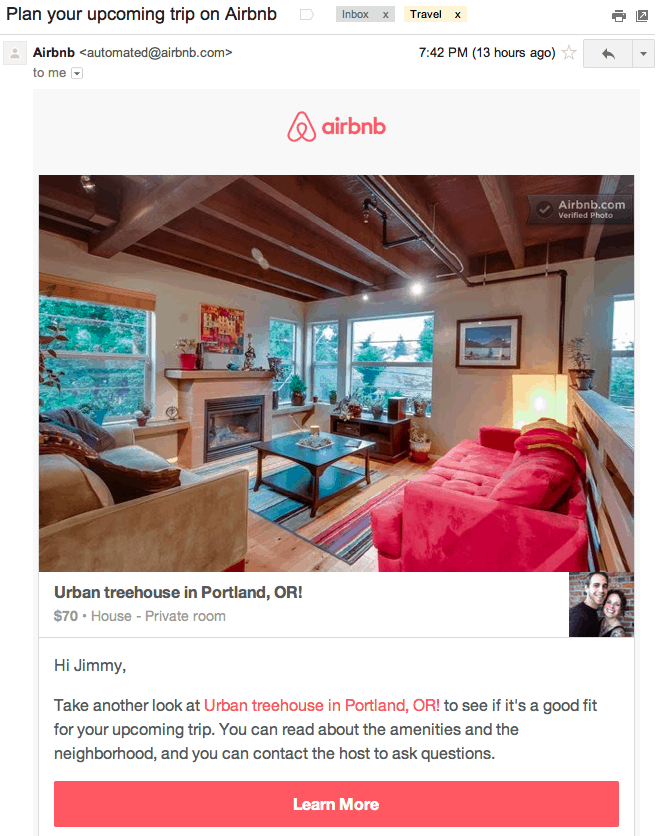
[source: https://www.marketingautomationinsider.com/marketing-automation-for-marketing/]
Take a look at this example above. It shows a property, that a customer had looked at, but hadn’t booked. Several days later, Airbnb sent the customer a behavior-triggered email that prompted them to take another look.
Another useful thing that Airbnb does, is it also gives a selection of similarly priced properties in the same area. Not only is this super smart, but it’s also incredibly useful to the customer. This is how automation really comes in handy.
2. You’ll get real-time insights
Marketers will already be very aware of the importance of insights for the B2B. For those not informed, insights will allow you to develop rich, personalized and relevant content that will drive sales and customer engagement. In some cases, it will also create customer loyalty, which is excellent news for you, but not so great news for your competitors.
Marketing automation can provide you with a lot of insight. Whether it’s from emails, ad-tech or re-targeting. When used well, it can help you to see how your social media has been performing and used to increase social engagement.
There’s no reason to restrict yourself when it comes to insights. Many B2Bs tend to only look at social metrics alone when they should be considering the bigger picture.
Perhaps a more significant bonus is, with marketing automation, you get real-time insight. You don’t have to wait a few days to see the engagement, with some cases it’s almost instant. For example, your customers replying to you, or clicking on a suggested link.
3. It will improve sales
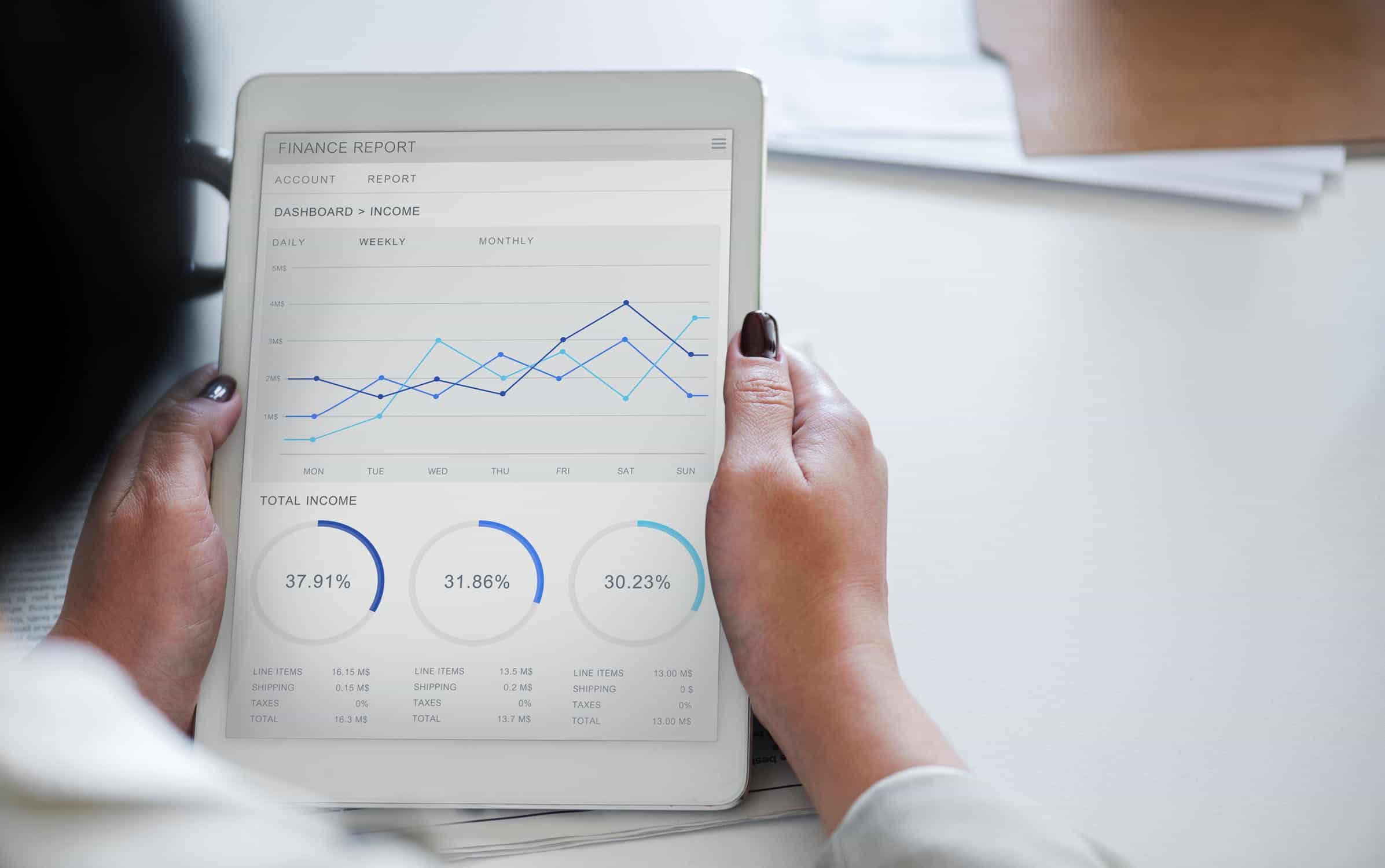
Let’s be honest, the primary goal for any type of marketing strategy is to improve sales. Marketing automation combined with social media will do exactly that.
Firstly, it will help you to get to know the prospect better. Making contact with them, in a less sales type of way. You might already be aware by now that customers don’t respond to this type of advert.
In fact, customers don’t respond to the original forms of marketing at all anymore, with many millennials distrusting traditional forms of advertising altogether.
Social media, on the other hand, is increasingly becoming the top place for adverts to be found.
An example of how marketing automation could prove super beneficial to your B2B is; you track who shared your brands, made mentions, or reacted positively to your brand. These are the people that you will continue to engage with, or send promotional content to. Already, this gives you a foot in the door.
Chances are, if a potential customer is reacting well to your marketing automation strategy, they’ll be pretty close to buying.
A combination of social media engagement, communication, and real-time insights will be sure to gain extra sales. This will undoubtedly be one of the most appealing reasons to go to marketing automation.
4. Targeting your audience will be much easier
Audience profile aspects are another essential part of marketing. This has become more important in the modern world, as personalization in digital forms of engagement has become necessary.
Personalization and marketing automation come hand-in-hand. Serving the best kind of content into a user’s feed will require audience segmentation. To achieve this goal you can use public records and get details about your audiences demographics, behavior, marriage, and divorce rates, and much more. Once this is achieved, you’ll be able to attract the right audience, who will be more likely to make a sale.
Marketers will know the importance of getting to know the customer. Marketing automation makes this much easier to do and makes your customers feel like they are appreciated and listened to.
5. You’ll get increased visibility of your brand
Visibility is essential for a business to be successful. That’s why brands like Pepsi and Kellog’s are household names and continue to make millions of sales every single year. Visibility is so important.
The reason big brands become so popular is because of their ability to make international and local campaigns. This was once a luxury only those big brands could do.
Now, with the combination of marketing automation and B2B social media, you can increase your visibility both internationally and locally. Even if you’re a small-mid-sized company. It doesn’t also require a large advert budget. And here are a few budget friendly B2B growth strategies that may help as well.
Scaling your brand efforts to outside of your regional/usual location is one of the best ways that you can increase your profits and sales. Marketing automation might just allow you to do this. International doesn’t seem so scary now.
6. Conversions will be easier

Did you know that 81% of web users will research into a product before purchasing it? Impulse buys aren’t as common as you might think.
Of course, this also depends on the market that you’re targeting – people are more likely to impulse buy a bar of chocolate compared to, say, a piece of furniture.
That being said, for the most part, people don’t just rush into a purchase. The internet has made this type of attitude much more prevalent. People can easily research into a product, and find the best deal online, in just a few clicks. This makes it simultaneously easier and harder for you to make sales.
Marketing automation allows you to target a customer, at their different buying stages.
What are the different buying stages?
- Recognizing the problem (need to buy something)
- Searching/researching for information
- Evaluation of the alternative option
- Purchase decision
- Purchase
- Post-purchase evaluation
Marketing automation will allow you to target your audience, individually on each buying stage. For instance, you can make sure that you’re there for the researching, the alternative options, or the problem-solving.
Through automation, a B2B can regularly update social media platforms, publishing unique and custom content. This will ensure that your conversions from start to finish are much better.
Make sure that your brand is the only one available for each stage of the buying process, and even when they research alternatives, they come back to you.
Obviously, a combination of engagement, a great product, and insights will also ensure maximum conversions.
7. Lead scoring will improve
What is lead scoring? It’s basically just the process of assigning “points” to every lead that you generate for your business.
How you score your leads is individual to you, based on multiple attributes. So, how they engage with your website, it depends on your business.
Marketing automation allows you to differentiate between the bleak prospects and the hot ones. In other words, you’ll be able to decipher which ones are more likely to make a sale. You can use lead scoring tools such as Madkudu alternatives to automate this process and score your leads in the easiest possible way.
This puts you and your brand in an incredible situation, where you already have a list of prospects that are more than likely ready to buy your product or invest in your service. From this, you can spend your time targeting them.
This ultimately saves time and money and increases your sales. An amazing all-around quality.
The best tools for B2B social media marketing automation
B2Bmarketing automation doesn’t have to be difficult, especially with some of the best tools around. Here are a few of our favorites.
Onlim – This handy little platform provides chatbots and voice assistants for marketing, sales and customer service. They specialize in automated conversational interfaces and are really leading the way. They even have free options.
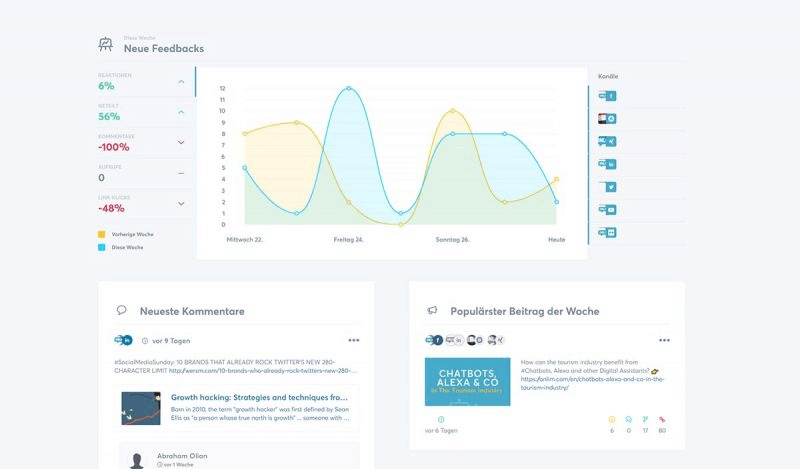
[ source: Onlim]
Mention – A subscription with mention will allow you to always know when you get mentioned in social media conversations. This will help you with brand monitoring, audience insights, and competitor analysis.
Agora Pulse – Although a little bit like Hootsuite, we’ve found that Agora Pulse actually works better when your aim is to engage with customers. This handy tool will plan posts, schedule, give insights, run contents, quizzes, and promotions.
Socedo – This tool is perfect for b2b social media, automatically scanning social media pages, and suggesting individuals who could be potential clients.
Once you have this audience, you can subject them to your marketing automation and other services to make them likely to become a sale.
Socedo will also connect you to influencers, that could help with your business. It also helps you find the hottest topics, trends, and news that your audience cares about, and will interact with.
Conclusion
There’s absolutely no doubt that marketing automation is a positive thing. Many brands are choosing to use marketing automation for B2B social media, and you should consider it too. Especially if you are already using employees to post on social media or by leveraging one of the many B2B referral marketing tactics that can leverage social media . How companies use social media for B2B marketing is unique to them, but we hope this post gave you inspiration on how to do it.
The takeaway from this post is that marketing automation can increase your brand visibility, save you time, increase your sales, and improve your marketing on the whole.
The majority of users believe that marketing automation is completely worth the price, 10% find it inexpensive, with only 11% thinking that it is too expensive. As far as marketing price goes, we’d say this is compelling evidence to support marketing automation. the It’s an incredible strategy to get involved with, and you should absolutely join in.
Let us know if you have any questions.
[starbox]
